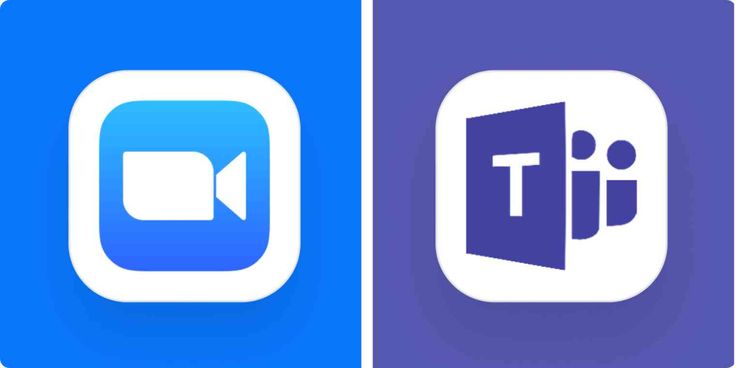Compare Pricing: Zoom vs. Microsoft Teams for Small Biz
By Halie Johnson | Published on May 14, 2025 | Estimated 6 min read

We've all been there—the video freezes mid-conference, the audio cuts out, or you're juggling multiple apps because your tools aren't syncing. For small businesses, these hiccups aren't just mildly inconvenient—they can hurt your productivity, frustrate your team, and potentially turn off your customers.
But with tools like Zoom and Microsoft Teams available, picking the right one for your business can dramatically simplify your daily workflow and help your team feel more connected.
Features and Functionality: Zoom vs. Microsoft Teams
Zoom: Ease of Use & Intuitive Meetings
Zoom made waves for a good reason: it's super simple to get started with (think grandma-easy video calls). The interface is intuitive—no steep learning curve here! This is great if your team relies heavily on quick, fuss-free calls, client meetings, webinars, and customer demos. For instance, Abby, owner of a digital marketing boutique, shared:
"We switched our client presentations to Zoom, and suddenly there were no more awkward delays or complicated setups. Our clients actually enjoy joining calls now!"
Microsoft Teams: Integration & Powerful Collaboration
Teams shines brightest if your workplace already uses Microsoft 365. It weaves in seamlessly with Outlook, Calendar, Word, Excel, OneDrive, and PowerPoint. If you're neck-deep in the Microsoft ecosystem, you'll appreciate the streamlined work process and reduced app hopping. Jason, a small CPA firm owner, explained:
"Using Teams, our accountants collaborate directly on Excel spreadsheets and Word docs during calls. It’s like we're all at one desk—even from home!"
Pricing Plans Compared
Your budget goes a long way as a small business. Let's unpack the cost to understand what's practical for your needs.
Zoom Pricing Plans
- Basic Plan (Free): Great for startups—includes unlimited one-on-one meetings but group meetings capped at 40 minutes.
- Pro Plan ($149.90/year/license): Ideal if your meetings consistently exceed 40 mins. Good for consultancy or coaching businesses.
- Business Plan ($199.90/year/license): Best if your growing team needs advanced meeting hosting features, branding capabilities.
- Enterprise Plan: Tailored to large teams (50+ people). Custom pricing and enhanced support.
Microsoft Teams Pricing Plans
- Office 365 Business Essentials ($6/user/month): Perfect for budget-conscious teams. Access Teams, web Office apps, email, and storage.
- Office 365 Business Premium ($12.50/user/month): Ideal if your team relies on desktop versions of Office apps. Suitable for creative or document-heavy businesses.
- Office 365 E3 ($20/user/month): Best for businesses needing advanced security/compliance tools (finance, healthcare, legal firms).
Consider your workflow: Zoom might fit startups budgeting tightly around essential meetings, while Teams could offer greater value if you need Office apps bundled in your daily tools.
User Experience from a Small Business Perspective
Zoom: Designed for Simplicity
Zoom puts simplicity first—with fast setups and easy invite links. Perfect for small teams needing frictionless client relations or prospect pitches. If professional client meetings or smooth-running webinars are your priority, Zoom is your best friend.
Microsoft Teams: Built for Collaboration
If collaboration defines your day—multiple teams, shared project management, and collaborative documents—Teams nails it. Sharing files in real-time, detailed project updates, integrated calendars, and streamlined chat make it excellent for businesses heavily involved in team-based projects.
Security and Privacy Compared
No small business owner can afford security slip-ups. How do Zoom and Teams stack up in protecting your sensitive data?
Zoom Security Features
Zoom took notes after early controversies, stepping up with robust end-to-end encryption, waiting rooms, multi-factor authentication, and security-first updates regularly.
Microsoft Teams Security Measures
Teams come with built-in encryption compliant with industry-specific certifications (HIPAA, GDPR), ideal for businesses handling sensitive data daily—like small healthcare practices or financial advisors.
Bottom line? Both are secure, but if industry-required compliance regulations are a must, Teams may simplify your security audits and compliance.
Integration and Compatibility: Tools That Play Nicely
Zoom Integrations
Zoom naturally integrates nicely with popular small business tools. Think CRM integrations like HubSpot for consultancy businesses or Trello and Slack for agile project-based teams. It's a flexible integration-friendly tool designed to fit your existing tech stack.
Microsoft Teams Integrations
Teams, naturally, offers unrivaled pairing with anything Microsoft 365-related. Combine it easily with Outlook calendars, SharePoint storage, Tasks, and Planner. If your small business heavily leans on Microsoft Office, it can massively streamline operations.
Customer Support Options
Support for Zoom Users
Zoom offers robust 24/7 live support to address troubleshooting swiftly. Small teams, lacking dedicated IT staff, will feel comfort in Zoom's responsive assistance to sort issues ASAP.
Microsoft Teams User Support
Teams channels customer support via Microsoft 365 admin center and extensive self-help resources, guides, and community forums—ideal if you're moderately tech-savvy or have techies on board.
FAQs: Answering Real User Queries
Is Microsoft Teams free for small businesses?
Yes, Microsoft Teams has a free version offering basic functionality suitable for smaller setups—from video meetings to limited file storage.
Does Zoom provide good audio/video quality for small businesses?
Leading brands regularly praise Zoom's stability, intuitive controls, and superior video/audio quality. If customer-facing calls are vital, Zoom consistently delivers impressive visual/audio clarity.
Can I integrate Microsoft Teams with Zoom?
Yes, limited integration exists. Using third-party connectors, you can, for example, start Zoom meetings from Teams. However, for best results—picking primarily based on your workflow is recommended.
Final Verdict: Choose What Fits Your Business
No single option fits everyone. Small businesses whose priorities lie in streamlined collaboration and tight Microsoft ecosystem integration will naturally feel aligned with Teams. On the flip side, customer-driven consultancies or teams needing hassle-free meetings often sway towards Zoom's ease of use.
Think about what your ideal workday looks like—then choose accordingly. Strive for fewer headaches, happier teams, and smoother operations.
Still undecided? Jump into a free trial for both Zoom and Microsoft Teams. Test them for yourself, and feel free to share what worked best for your business or reach out if you have a favorite experience to share!
Ready to see more clearly? Give your preferred platform a trial run today!
Maybe You're Interested In Shopping At These Stores
About the Author: Halie Johnson
Halie Johnson is a Marketing Manager and the founder of RetailReviewHub, where she combines over a decade of experience in affiliate marketing and deal hunting to help users save money with confidence. With a deep understanding of consumer behavior and pricing strategy, Halie is dedicated to writing clear, unbiased product reviews and sharing the best deals across the web. When she’s not digging through coupon databases or analyzing offer performance, she enjoys testing products first-hand and writing savings guides that actually work. Follow Halie on her journey to smarter shopping!
Related Posts

Top Independence Day Deals 2025 – Save Big with Verified Coupons at RetailReviewHub
Independence Day is a prime time for shoppers to find great discounts...

Score Explosive July 4th Discounts – Curated Offers on RetailReviewHub
Independence Day 2025 brings a great chance to save on many products w...